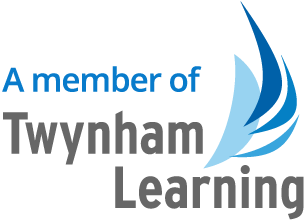English Literature
|
Why English Literature? The A-Level qualification in English Literature will encourage you to develop your interest and enjoyment in literary studies through reading widely, independently and critically. The course will give you an introduction to the traditions of English Literature. The subject will allow you to develop as a confident and reflective reader of a range of texts and you will learn to express your responses effectively through speech and writing. You will learn to use critical concepts and terminology with understanding and discrimination. You will be encouraged to reflect on your own responses to texts, consider other readers' interpretations and develop awareness of the contexts in which texts were written. |
|
|
What do I need to know? Exam board: We study Edexcel English Literature. Entry Requirements: We ask that you meet the standard Sixth Form requirements, and we would prefer you to have grade 6 or above in GCSE English Language. Key Content: The A-Level will broaden and deepen your knowledge, skills and understanding and enable you to gain a wider sense of the scope of literary study. You will be encouraged to use your detailed knowledge and understanding of individual texts to explore comparisons and links between them, and to appreciate the significance of cultural and historical influences upon readers and writers. |
|
|
What is the work like? As an example of the kind of work that you will cover during the A-Level course, please find to the right the pre-A-Level material that we asked Year 11 to complete before starting their English Literature course with us in September 2020. |
English Literature Phase 1English Literature Phase 2English Literature Phase 3 |
|
Who do I contact if I have any questions? Mrs Cox will be happy to answer any questions that you might have. You are welcome to email her on marianne.cox@twynhamschool.com To ask an English Literature student more about the course, please email student@twynhamsixthform.com and they will be happy to help you. If you are struggling to choose between English Literature and English Language & Literature, please see our video below: |
|
Curriculum Information
Year 1
The Woman and Society Unit - Tess of the D'Urbervilles by Hardy and A Thousand Splendid Suns by Hosseini
Poetry Unit - The Romantics and Post-2000 Poetry Anthology
Tragedy Unit - A Streetcar Named Desire by Tennessee Williams
Year 2
New units as well as revision of the previous texts
Component 1: Drama (assessed by examination- 30% of the qualification)
Candidates will study one Shakespeare play (Othello) and one other drama from the tragedy genre (A Streetcar Named Desire).
In the examination two questions are to be answered; one question from Section A and one question from Section B.
Section A – Shakespeare: one essay question, incorporating ideas from wider critical reading.
Section B – Other drama: one essay question.
Component 2: Prose (assessed by examination- 20% of the qualification)
Students study two prose texts from a chosen theme – Dracula and The Little Stranger. At least one of the prose texts must be pre-1900.
Students answer one comparative essay question from a choice of two on their studied theme
Component 3: Poetry (assessed by examination- 30% of the qualification)
Students will prepare for responding to an unseen modern poem, through study of poetic form, meaning, language, style and study a range of poetry from a literary period – The Romantics.
In the examination there are two sections: students answer the question on the unseen poem and one question from a choice of two on their studied text.
Section A – Unseen Poetry: one essay question on an unseen modern poem written post 2000
Section B – Prescribed Poetry: one essay question.
Coursework: 20% of the qualification
Students have a free choice of texts to compare to Nineteen Eighty-Four. The texts may be linked by theme, movement, author or period. (2500-3000 words).
Assessment
Component 1: Drama (assessed by examination- 30% of the qualification)
In the examination two questions are to be answered; one question from Section A and one question from Section B.
Section A – Shakespeare: one essay question, incorporating ideas from wider critical reading.
Section B – Other drama: one essay question.
Component 2: Prose (assessed by examination- 20% of the qualification)
Students study two prose texts from a chosen theme. At least one of the prose texts must be pre-1900. Students answer one comparative essay question from a choice of two on their studied theme.
Component 3: Poetry (assessed by examination- 30% of the qualification)
In the examination there are two sections: students answer the question on the unseen poem and one question from a choice of two on their studied text.
Section A – Unseen Poetry: one essay question on an unseen modern poem written post 2000.
Section B – Prescribed Poetry: one essay question.
Coursework: 20% of the qualification
Students have a free choice of two texts to study. The texts may be linked by theme, movement, author or period. (2500-3000 words).
Extra-Curricular Activities
Trip to Hardy's Cottage and Max Gate.
Additional Costs
We provide: In class access to:-
EdExcel critical anthology for Othello
Other costs: To be met by students
Tess of the D'Urbervilles by Thomas Hardy (Wordsworth Classic) ISBN-10 1853260053 £2.25
A Thousand Splendid Suns by Khaled Hosseini ISBN-10 1526604752 £8.19
A Streetcar Named Desire, Tennessee Williams ISBN-13:978-0141190273 from £6.99
Othello (Wordsworth Classic), William Shakespeare ISBN-13:978-1853260186 from £2.44
Poems of the Decade: An Anthology of the Forward Books of Poetry ISBN-13:978-0571325405 from £8.46
English Romantic Verse ISBN-13:978-0140421026 from £7.79
Nineteen Eighty-Four, George Orwell ISBN-13:978-0141187761 from £4.49
Plus, one coursework text of choice.
(Prices from Amazon)
Student guides are available at student discretion.
Over the two year course there maybe the opportunity for school trips but these will not be compulsory.
Students will be provided with exam copies of the texts, but should invest in their own copies to make notes in.


